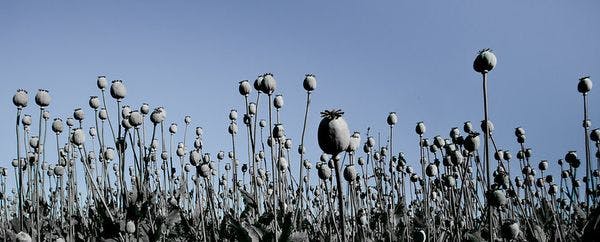Flickr - Paul Chapman- CC BY-NC-ND 2.0
Broyés par le virus et la guerre, les chômeurs afghans se tournent vers l'opium pour se procurer de l'argent
Les milliards dépensés dans les programmes d’éradication au fil des ans ont échoué, en ayant eu peu d’impact positif sur le bien-être de communautés en expansion. Pour en savoir plus, en anglais, veuillez lire les informations ci-dessous.
Afghans pushed out of work by the coronavirus pandemic after businesses and schools were shuttered have turned to opium cultivation for cash during this year's poppy harvest.
Afghanistan has long been the world's top grower of opium, producing more than 80 percent of the global supply and providing hundreds of thousands of jobs in the perennially cash-strapped economy.
A coronavirus lockdown and travel restrictions saw trade grind to a halt and many businesses were forced to lay off staff, in a conflict-riven country where stable jobs are already rare.
Farmers usually rely on a seasonal labour force for the spring and summer harvesting months but the coronavirus pandemic meant many were unwilling or unable to travel for the work.
More than 38,000 cases of coronavirus have been declared in Afghanistan and more than 1,400 deaths, though the health ministry estimated earlier this month that a third of the population has likely contracted the disease. A months-long lockdown, which has mainly affected cities, has slowly been lifted since the beginning of August, with some schools, wedding halls and markets reopening. Despite myriad eradication programs over the years, Afghan farmers continue to grow poppies with near impunity, as both government officials and the Taliban often profit from the lucrative trade.
